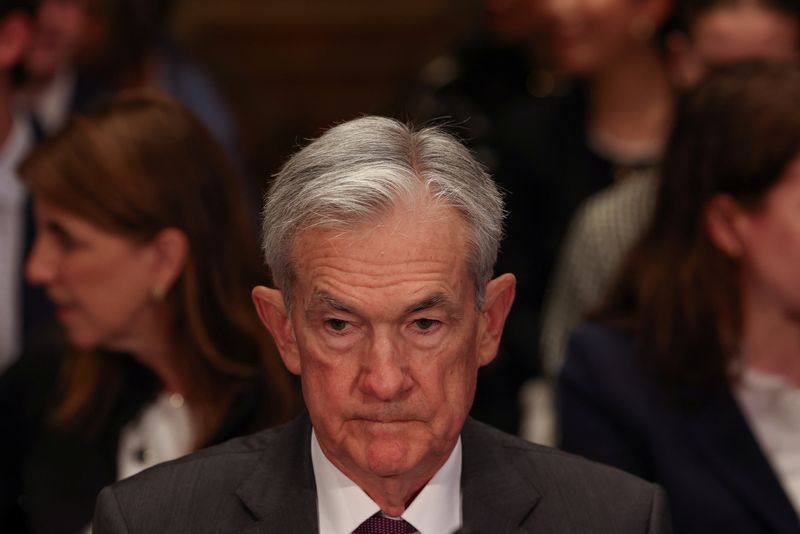Navitas stock soars as company advances 800V tech for NVIDIA AI platforms
Investing.com - Unanticipated weakness in the U.S. job market could lead the Federal Reserve to begin considering possible interest rate reductions as soon as July, according to analysts at Morgan Stanley (NYSE:MS).
Writing in a note, the brokerage flagged that Fed Chair Jerome Powell backed a wait-and-see approach to future rate cuts at a closely-watched panel discussion with global central bankers this week.
Speaking at the European Central Bank’s annual forum in Sintra, Portugal, Powell said sweeping U.S. tariffs have clouded the broader economic outlook, bolstering the case for the Fed to assume a cautious attitude to further policy actions.
But Powell, who has recently faced intensifying pressure from U.S. President Donald Trump to quickly bring down borrowing costs, said that a majority of the rate-setting Federal Open Market Committee believes that it will be appropriate to start reducing rates at the Fed’s remaining four meetings this year. This, the Morgan Stanley analysts noted, would include the next gathering in July.
Powell also suggested that, absent Trump’s aggressive tariff agenda, the Fed would have already returned to cutting rates, adding "we went on hold when we saw the size" of the levies and assessed economists’ warnings that the duties may drive up inflationary pressures and weigh on the wider economy.
Yet "as long as the U.S. economy is in solid shape, [...] the prudent thing to do is to wait and learn more and see what those effects [from tariffs] might be," Powell said.
Against this backdrop, the Morgan Stanley analysts said the June employment report, due out on Thursday, has now taken on "additional significance."
"Not specifically ruling out a July cut and saying the Fed remains attuned to unexpected weakness in the labor market raises the stakes for the June employment report," they wrote.
"What would constitute "unexpected" weakness? We suspect that unchanged payrolls and/or an unemployment rate at 4.6% or above."
Economists are currently predicting that nonfarm payrolls for last month will come in at 120,000, down from 139,000 in May.
